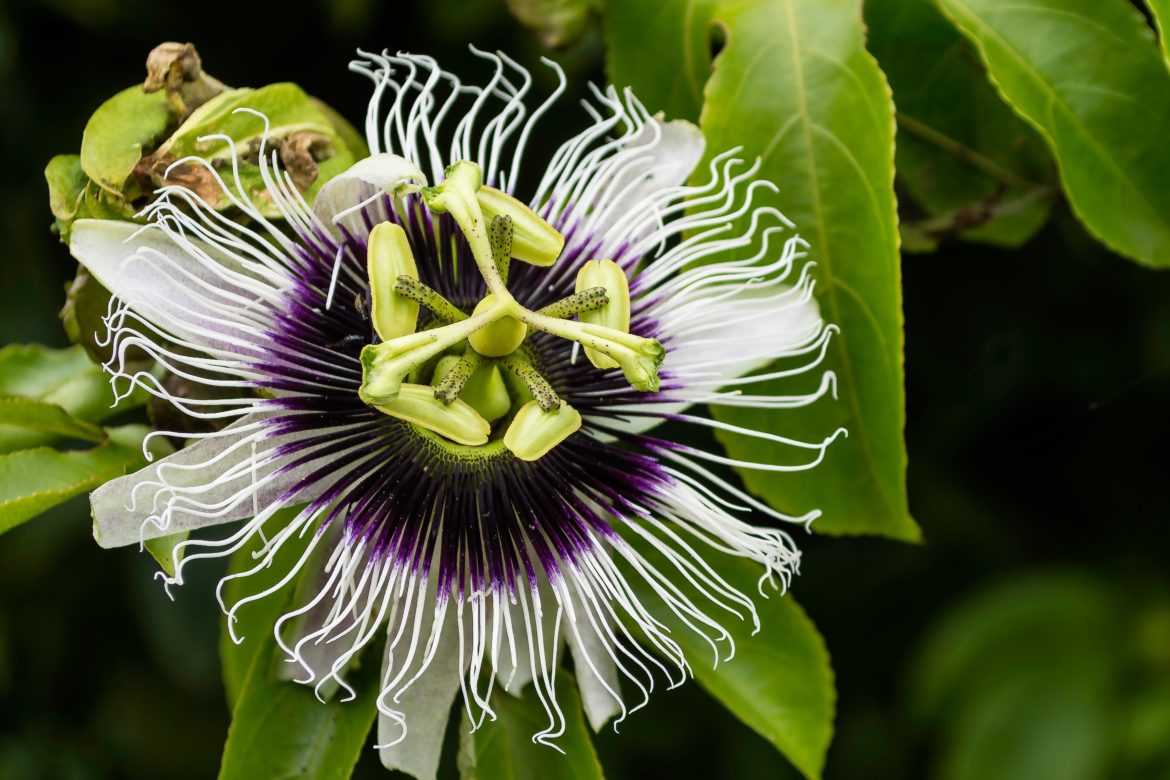
Passionflower, an Herb for Sleep and More
I recently wrote a blog on one of my favorite herbs for the symptoms of anxiety: wild oats. In that blog, I mentioned trying several different calming herbs, many of which were gentle and some of which were sedating. While oats is a mild choice for anxiety, sometimes we need help with sleep in times of higher stress. The sedative herbs might not get to the underlying reason for the insomnia, but they can be used while simultaneously treating the root cause.
Passionflower was a “nervine” herb that definitely eased my anxiety. I didn’t actually realize that it would put me to sleep…fast! I normally don’t have trouble falling asleep, so this was an experiment early in my learning that ended in a harmless but humorous fail.
I wanted to see how passionflower worked on my stress symptoms. I am sensitive to herbs, and when I accidentally took too much, I was off to dreamland earlier than I wanted to be. Thankfully, I knew passionflower was (is) safe for me, and I’d taken it at night. I believe the expression to use here is “no harm, no foul.”
Before I fell asleep that night, I felt the herb’s effect within ten minutes. My body went soft and loose. I felt a sort of joyful lightness that would have been enjoyable at a lower dose. Although passionflower relaxed my body, it notably lightened my mood. I’d say it put me to sleep in 20 minutes.
Passionflower is a gorgeous vine that flowers in intricate reds, purples, blues, and pinks. My mother had it creeping up the front of her house before I knew it had a medicinal use. While many herbs are gentle, especially compared to pharmaceuticals, I’d call this herb a gentle powerhouse.
Passiflora incarnata is characterized as a nervine. It has a soothing effect on the mind. But I find it to be most specifically useful for insomnia. In almost all of my study of passionflower, it is described as a sedative and a “hypnotic.”
This herb also has antispasmodic properties, hence loosening my body. It could therefore be used for anxiety coupled with muscular tension, spasms, and restless twitching. Some find it useful for menstrual and digestive cramping. Historically, passionflower has also been used to lower blood pressure and ease palpitations.
Since my accidental sleep fail with this herb, I have tried others for insomnia. In the rare times I have trouble winding down, I like to have something gentle yet effective on hand. There are other herbs that work well but may be lesser known in the mainstream: California poppy and skullcap are two examples. Some think of chamomile, but rarely do the store-bought tea bags provide a medicinal dose that would allow for swift sleep. Passionflower remains my favorite.
As with all herbs, passionflower has contraindications. It may not be right for everyone. I am happy to determine if this herb would be useful for you. And of course, to help get to the root cause of the insomnia.

